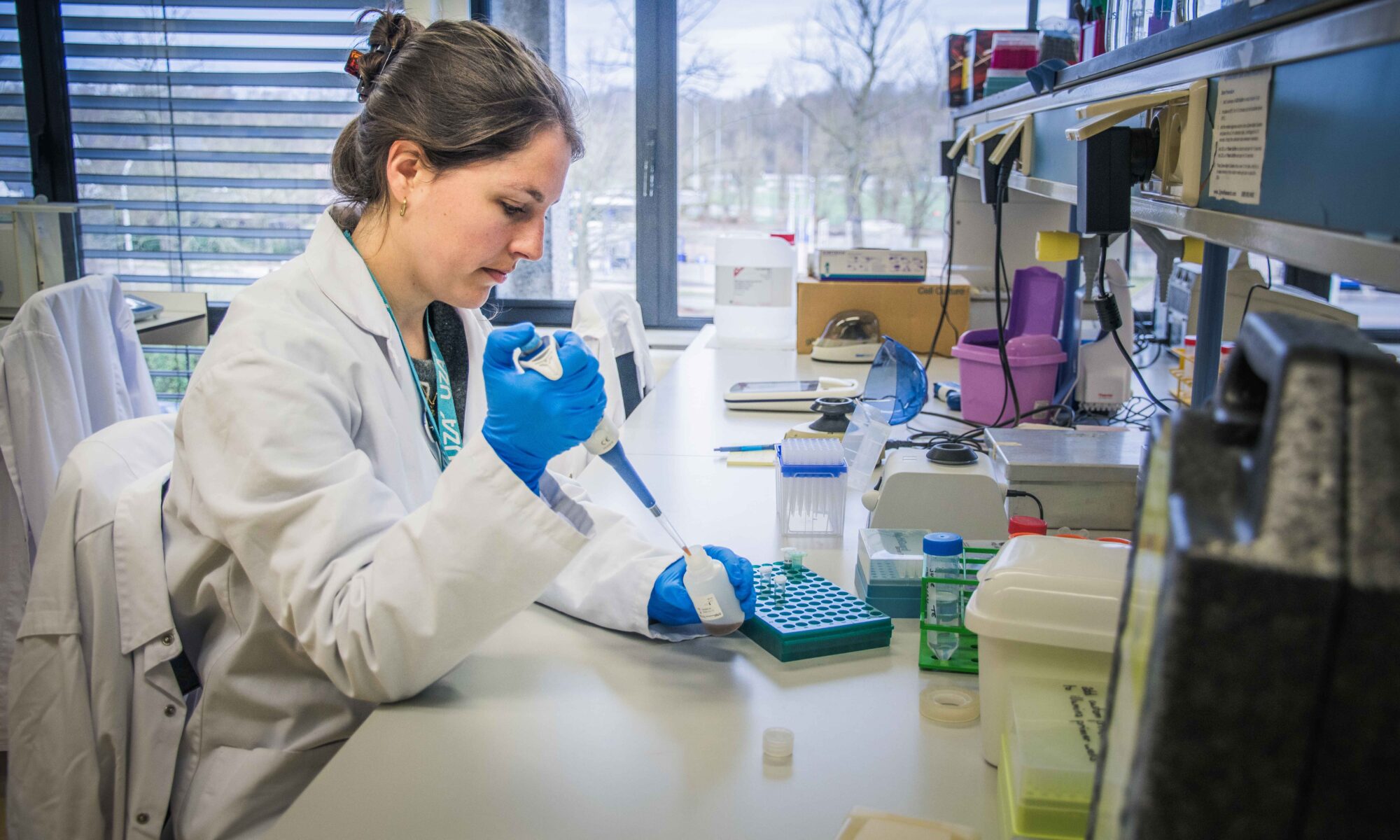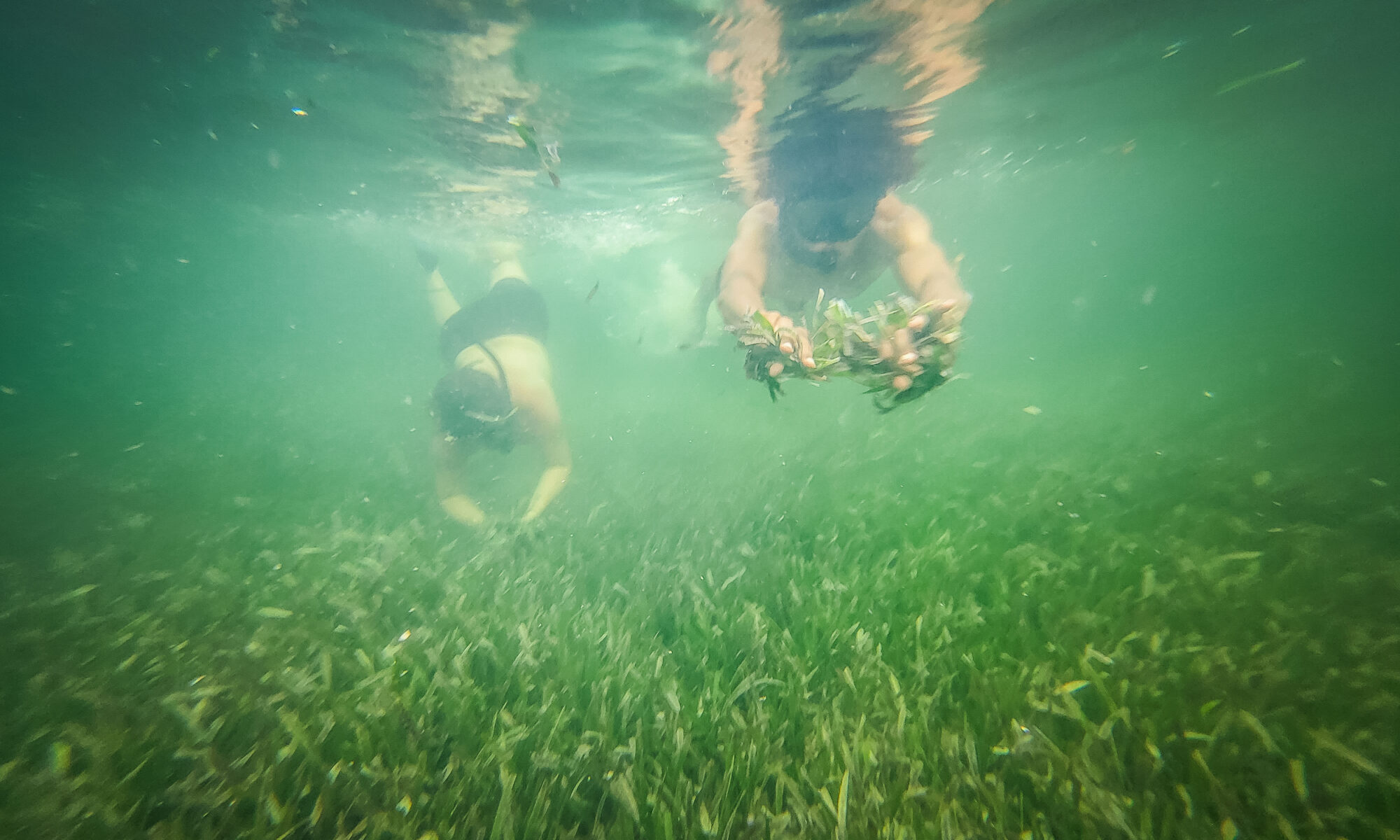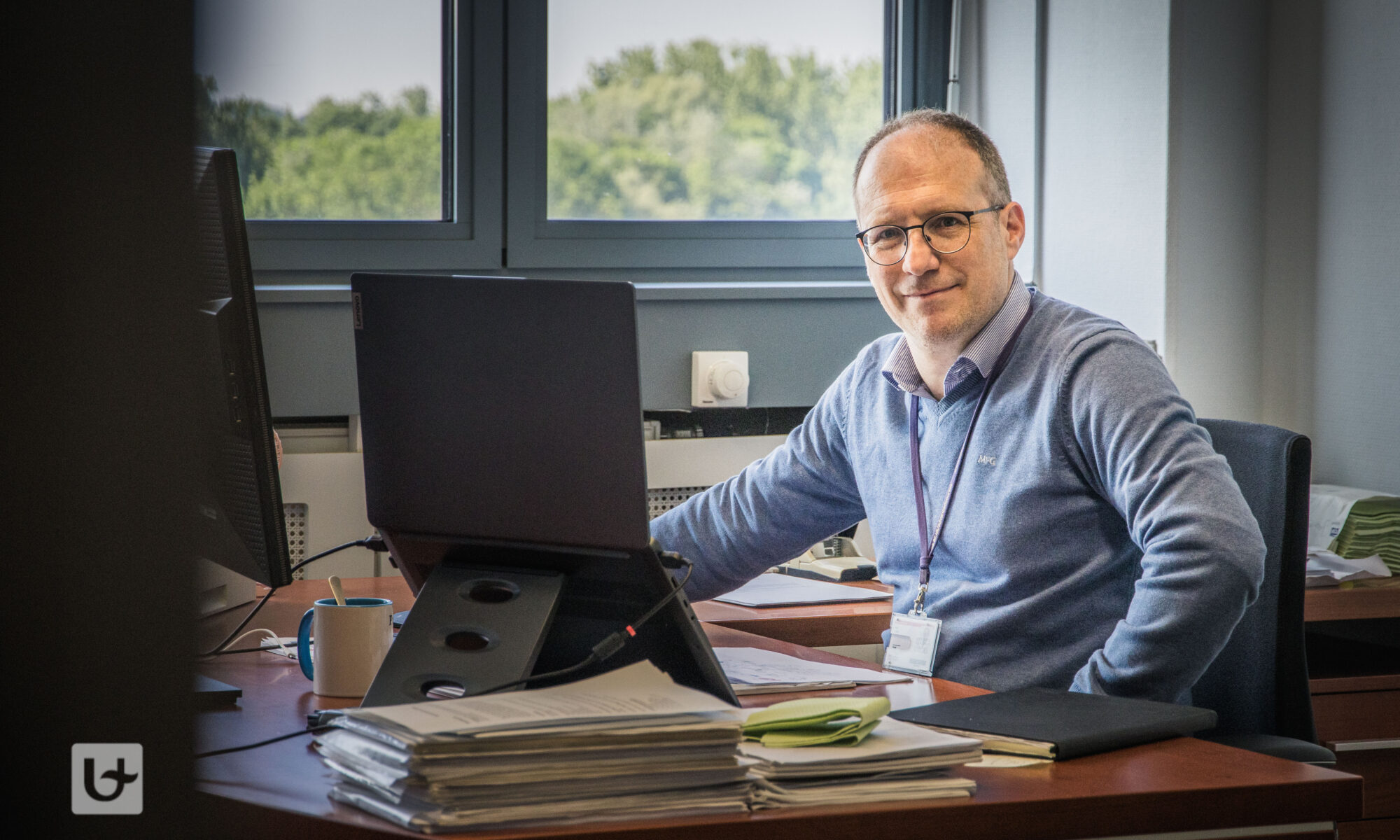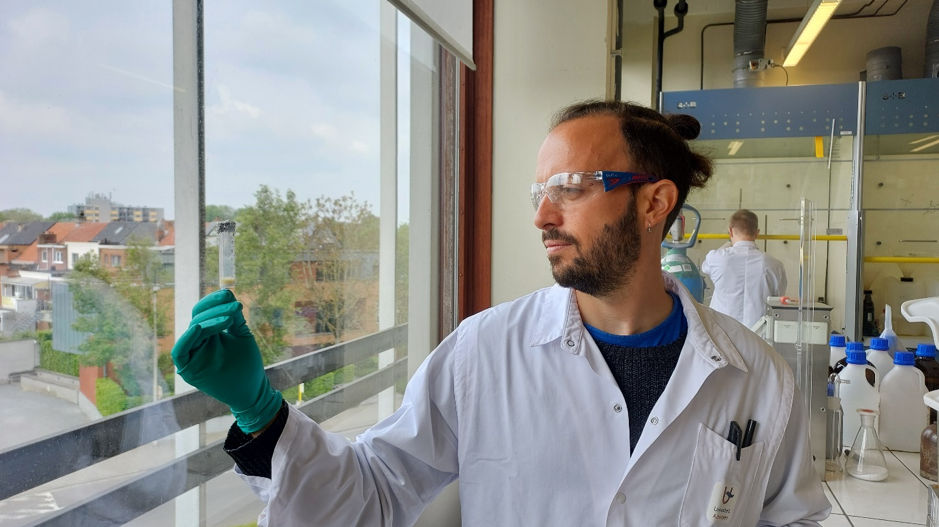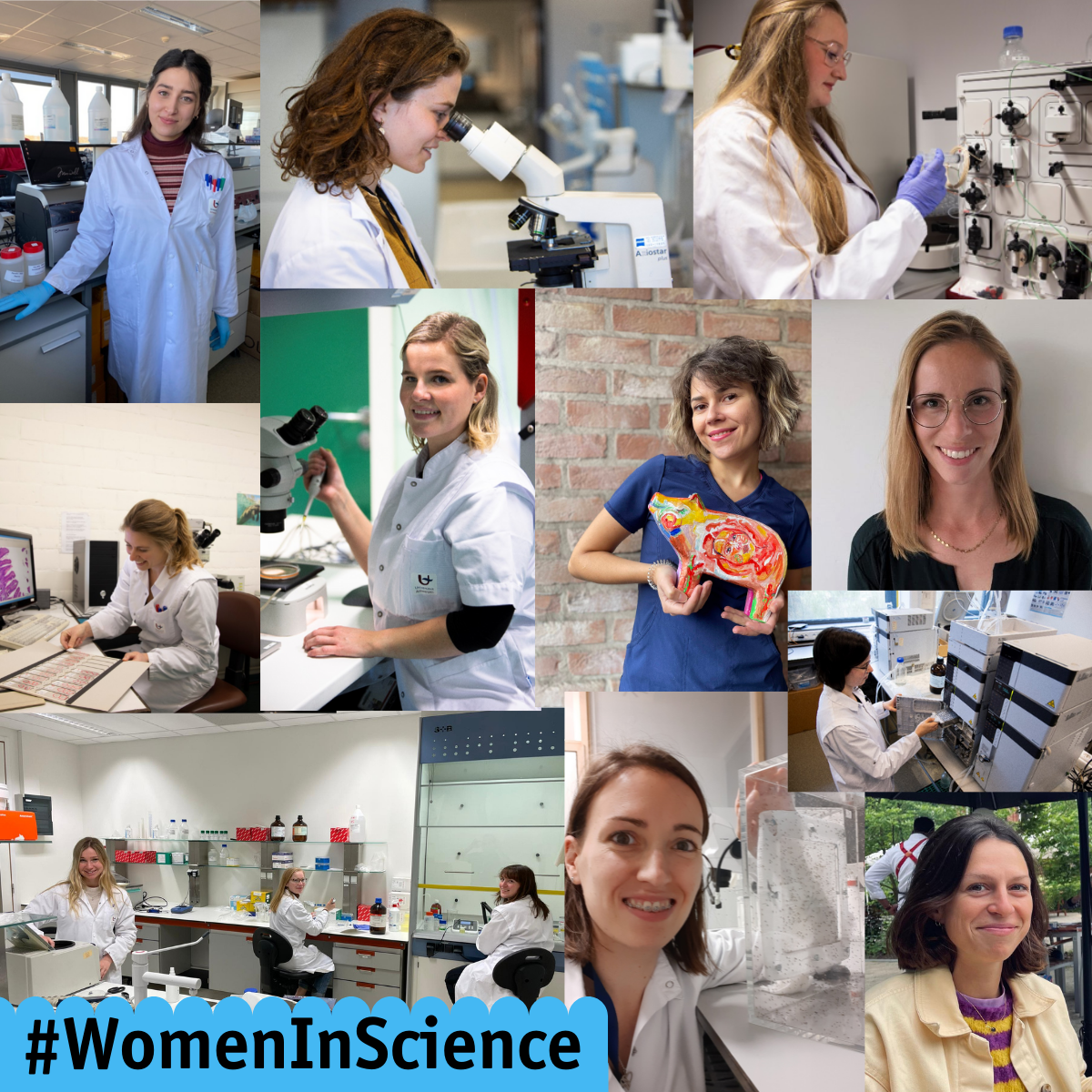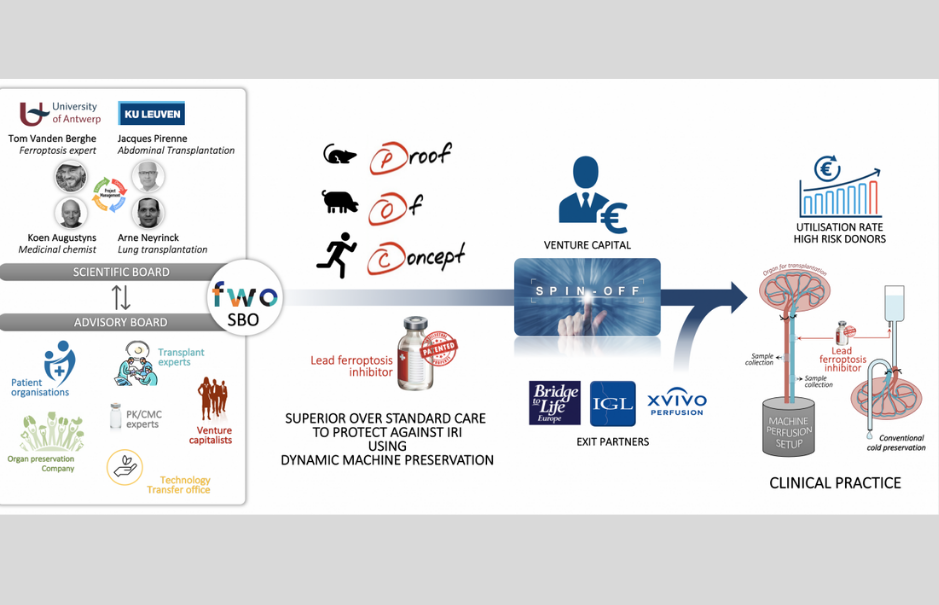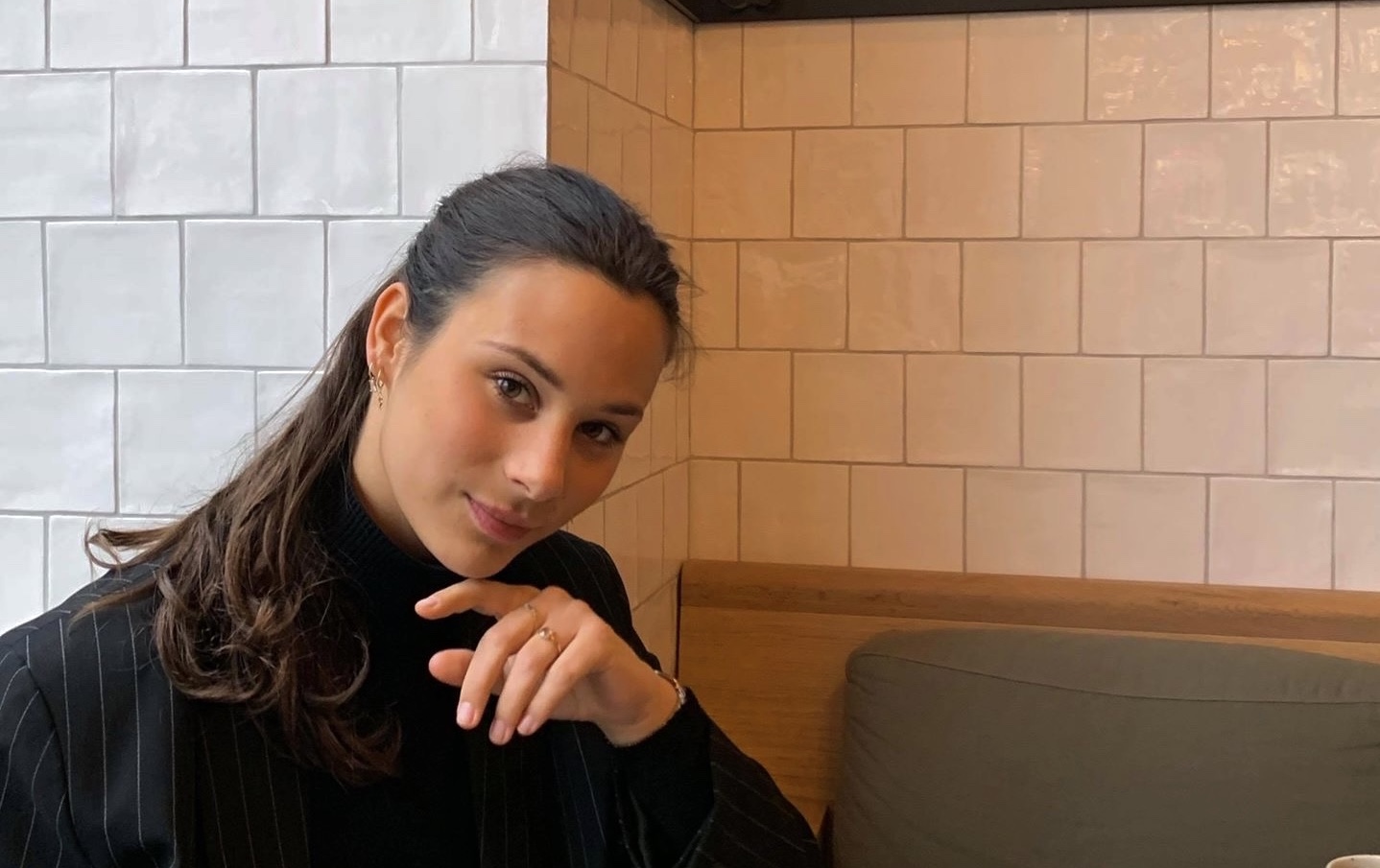Neuro-endocriene neoplasieën (NEN), soms wel de zebra’s onder de kankers genoemd, is een heterogene groep tumoren die nog te vaak onopgemerkt of verkeerdelijk gediagnosticeerd wordt. ‘Gemiddeld duurt het 5 tot 7 jaar vooraleer patiënten een correcte diagnose krijgen’, legt doctoraatsonderzoeker Laura Mariën uit.
Filter
Seas and oceans harbor countless undiscovered treasures. One of these is the seagrass Thalassia, specifically the species Thalassia testudinum. Long recognized for its ecological importance, this marine plant serves as a vital food source for creatures like sea turtles and plays a key role in protecting vulnerable Caribbean coastal ecosystems. Recently, scientists have discovered that Thalassia contains significant anti-carcinogenic compounds, capturing the attention of researchers and marine science biomedical institutes.
Recent research by Prof. Guy Caljon and Dr. Laura Dirkx found that Leishmania parasites can enter a dormant state in bone marrow stem cells, making them resistant to drugs. This highlights the need for new treatments to target this phase and improve leishmaniasis management.
As we commemorate the International Day of Women and Girls in Science, we’d like to recognize and celebrate the invaluable contributions of our women researchers who are leading the way in scientific exploration. From unraveling the complexities of neurological disorders to pioneering advancements in cancer imaging and treatment, these exceptional women are at the forefront of cutting-edge research.
In Antwerp, the Pint of Science festival is brewing, creating a perfect blend of academia and casual pub atmosphere. Pint of Science is a global science communication initiative held annually in 25 countries around the world during the month of May. The premise is simple yet powerful – bringing researchers to local pubs to share their work in an informal and engaging manner. The goal is to break down barriers, make science accessible, and foster meaningful conversations between scientists and the public.
I’m Dr. Ayşe Candayan-Niron, an MSCA-funded postdoctoral researcher in the Molecular Neurogenomics Group. I research Charcot-Marie-Tooth disease, a group of rare inherited disorders affecting the peripheral nervous system. More than 100 genes and thousands of mutations can cause this disease, however approximately 35% of patients still lack a genetic diagnosis. My goal is to bridge this diagnostic gap by finding new genes that can lead to this pathology.
In recognition of the need for gender equality and empowering women and girls in science, the United Nations General Assembly proclaimed 11th February as the International Day of Women and Girls in Science. On this special occasion, let us celebrate the achievements and contributions of some of the remarkable women scientists in our faculty!
I’m Lorenzo Cianni and my research focuses on targeting autophagy in cardiovascular and metabolic diseases. I was awarded a Marie Skłodowska-Curie Actions (MSCA) Postdoctoral grant for this specific project. I’ll be working with Prof. Pieter Van Der Veken and Prof. Wim Martinet to tackle tissue-specific induction of autophagy as an innovative therapeutic strategy for cardiovascular and metabolic diseases.
In order to achieve gender equality and the empowerment of women and girls, the United Nations General Assembly declared 11 February as the International Day of Women and Girls in Science in 2015. We’d like to celebrate this special day by introducing you to some of our excellent women researchers!
Prof. Tom Vanden Berghe and Prof. Koen Augustyns have received a 1.7M euro FWO-SBO grant to pave the way for a ferroptosis spin-off company. Together with a KULeuven team of transplantation surgeons, they will introduce ferroptosis inhibitors into the clinical practice of organ transplantation.
My name is Kaat Colman and I’m currently completing my third Bachelor year in Biomedical Sciences at UAntwerp. In the 3rd Bachelor of Biomedical Sciences there is the course ‘Bachelor Thesis with Internship’. I had to choose a topic on which I would write my Bachelor thesis and later also perform an internship. I chose to do an internship on the auditory system at the Antwerp University Hospital (UZA).
I’m Jasper Van Goubergen and I’m a PhD student at the Medical University of Innsbruck in Austria. I graduated from UAntwerp with a Master in Biochemistry and Biotechnology. I had the opportunity to do a voluntary research internship at the UAntwerp Center for Oncological Research (CORE). This was an excellent opportunity for me to learn new skills in a state-of-the-art lab. I’d like to share with you what I learnt and why I think it’s useful to do research internships.

